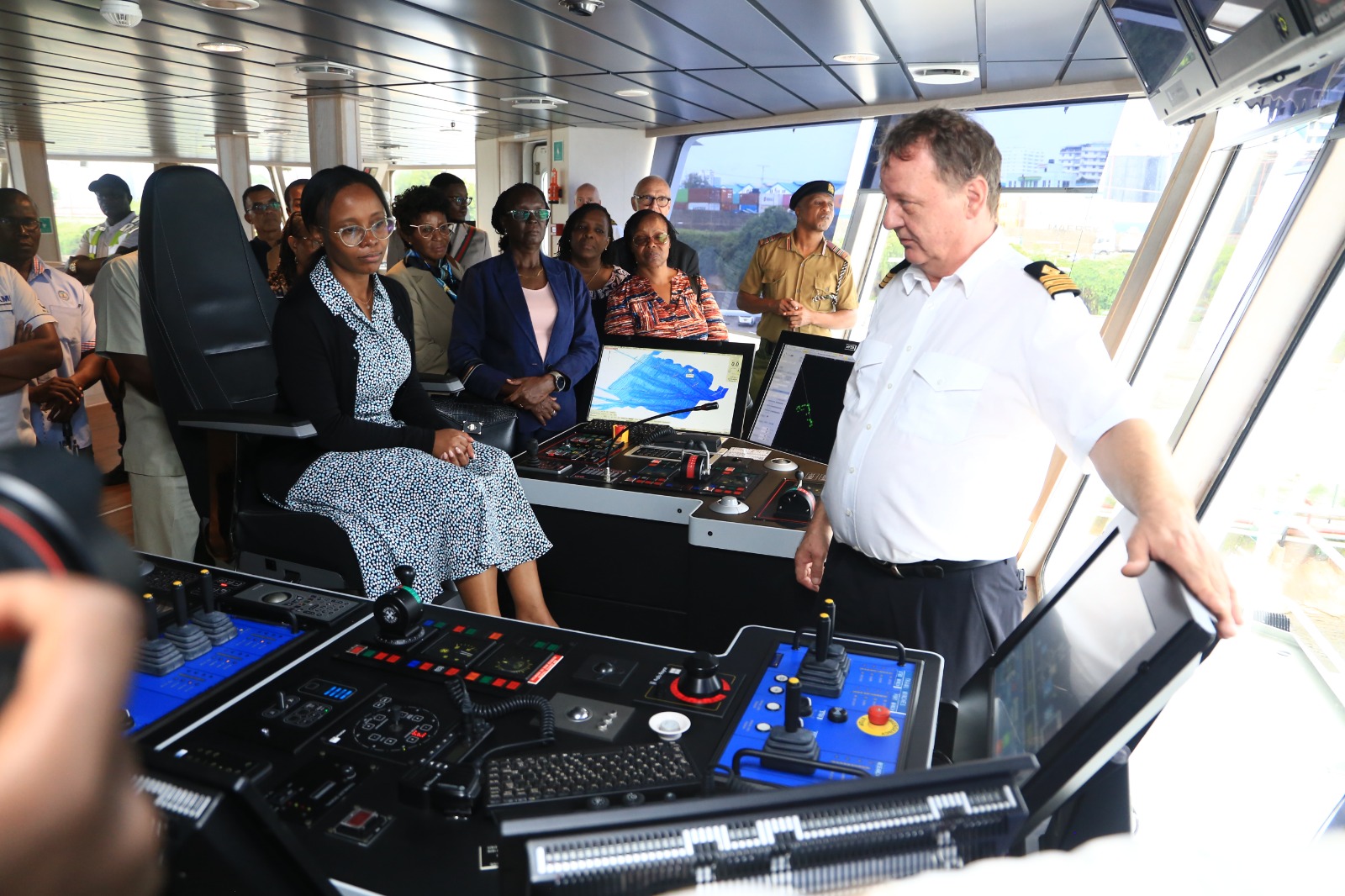![[PHOTOS] DP inspects works at Kabonyo Fisheries in Kisumu](/_next/image?url=https%3A%2F%2Fcdn.radioafrica.digital%2Fimage%2F2025%2F04%2F67e4dcb3-f7fc-4243-acf9-bbd0d9ea5e7f.jpeg&w=3840&q=100)

More than 300,000 Kenyans depend directly on fisheries with many more benefiting indirectly, but the resource is threatened by climate change, overfishing and marine pollution.
However, experts are optimistic about potential solutions following the completion of a scientific survey conducted in Kenyan waters as part of a research cruise from April 24 to May 5.
The survey was undertaken via the Norwegian vesse in partnership with Kenyan scientists.
The primary aim of the expedition was to assess fish biomass, examine oceanographic conditions and evaluate overall ecosystem health.
“This was all done for the sustainable management of fisheries resources. The surveys provided extensive data from the Exclusive Economic Zone, the continental shelf and the slope and will reveal the diversity within our ecosystem,” said James Mwaluma, the director general of the Kenya Marine and Fisheries Research Institute.
He was speaking during the 50th anniversary celebrations of the EAF-Nansen Programme in Mombasa.
The programme encompasses two distinct initiatives: the EAF-Nansen Programme and the Nansen Initiative.
The Ecosystem Approach to Fisheries (EAF)-Nansen Programme is a collaboration between the Food and Agriculture Organization and Norway, focusing on sustainable fisheries.
The Nansen Initiative is a state-led consultative process concerning the protection of populations displaced by climate change and disasters.
Eight scientists were aboard the research vessel.
Betsy Njagi, PS for the Blue Economy and Fisheries, said Kenya is among the countries developing a sustainable ocean plan and participating in the Biodiversity Beyond National Jurisdiction treaty, leading up to UNOC 3 in France next month.
“Kenya is very keen on ensuring the blue economy space is well utilised sustainably,” Njagi said.
Last week, CS Hassan Joho led a Kenyan delegation to South Korea for the 10th ‘Our Ocean Conference’. Mombasa will host the 11th edition of the summit – the first to be held in Africa.
The conference will provide an opportunity for Kenya and Africa to highlight their ocean economy agenda.
Njagi, representing CS Joho, noted that Kenyan scientists and resource managers have received training in data-driven, ecosystem-based marine management.
“The partnership has supported Kenyan scientists in collecting data where knowledge gaps exist and has connected them with international experts for mentorship and skills transfer,” Joho said in a speech read by Njagi.
The results of the 2025 survey will aid in planning sustainable management strategies and enhance Kenyans' resilience to climate change and marine biodiversity loss.
Joho called for more surveys across different seasons to provide a clearer understanding of ecosystem health and the environmental dynamics involved.
Tipo Nyabenyi, the ad interim representative of FAO in Kenya, emphasised that the research is particularly crucial for the country and the wider Western Indian Ocean region, where fisheries are a vital source of nutrition, jobs and income for coastal communities.
Nyabenyi said the EAF-Nansen Programme has been instrumental in supporting Kenya’s fisheries institutions, informing policies and frameworks that help protect fisheries resources.
“In 2025 alone, the programme supported the assessment of our policy framework, trained government officials and introduced tools to help monitor progress on sustainable fisheries,” Nyabenyi stated.
Marete Tandstad, the EAF-Nansen Programme coordinator at the FAO, highlighted Kenya’s significant role in the programme, being one of the first countries visited by the vessel in the 1980s.
She mentioned that the survey conducted off the Kenyan coast involved 18 scientists, equally divided between men and women.
Norwegian Ambassador Gunnar Holm, observed that like his country, Kenya has a strong seafaring history and ambitious plans for the blue economy.
“Kenya recognises the crucial role that oceans will play in its future development. Sustainability is central to this. To achieve that, we need accurate, reliable data. This is where the research vessel and the Ecosystem Approach to Fisheries Nansen Programme come into play,” Holm said.
He added that the two countries are working together to promote clean, healthy and productive oceans.
Kenya is one of 18 member countries of the international high-level panel for a sustainable ocean economy. President William Ruto is on the panel.
“That high-level panel represents 42 per cent of the world’s coastlines and 18 per cent of global fisheries. So, what we do together really matters,” he concluded.
Instant Analysis:
Effective management of Kenyan fisheries is crucial for food security, economic development and the livelihoods of coastal communities. Scientific data is essential for formulating protective policies that ensure the sustainable use of available resources. The blue economy has been identified as a key area for Kenya’s GDP growth.












